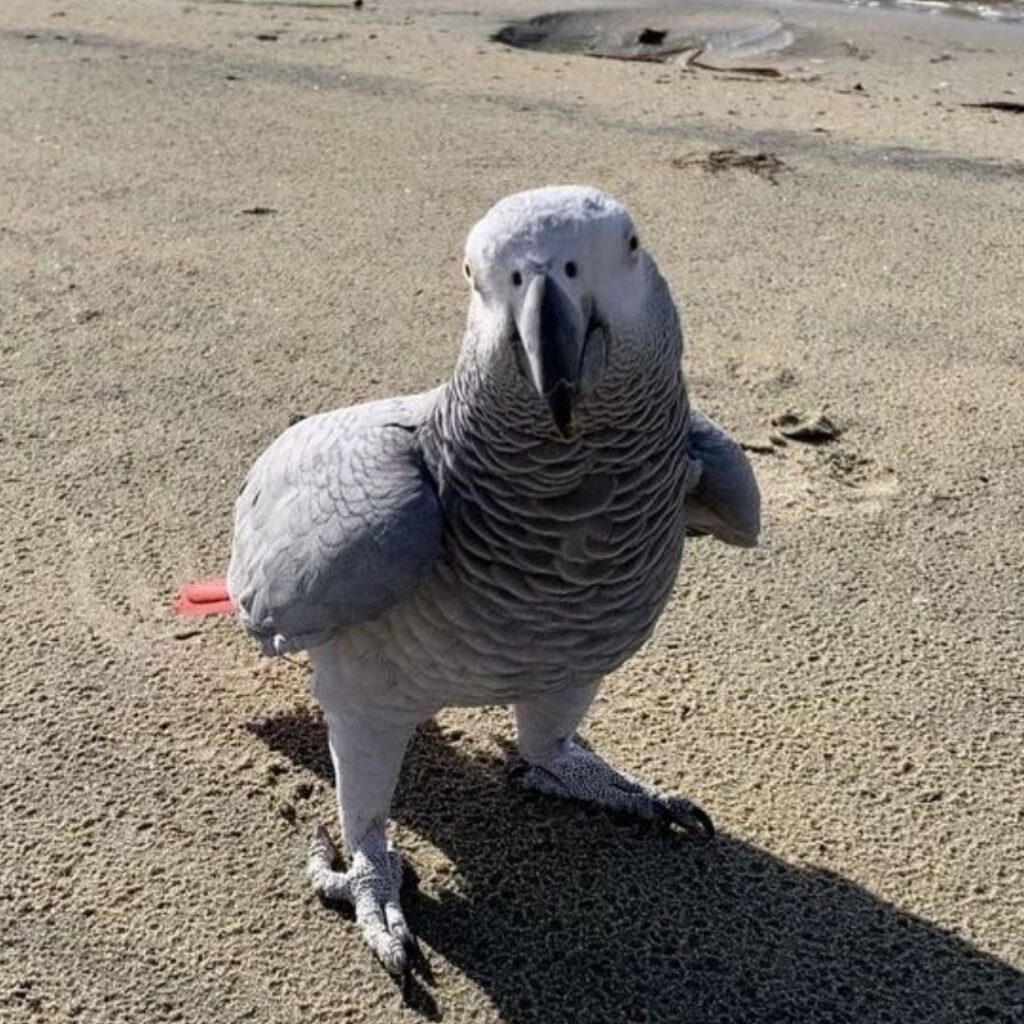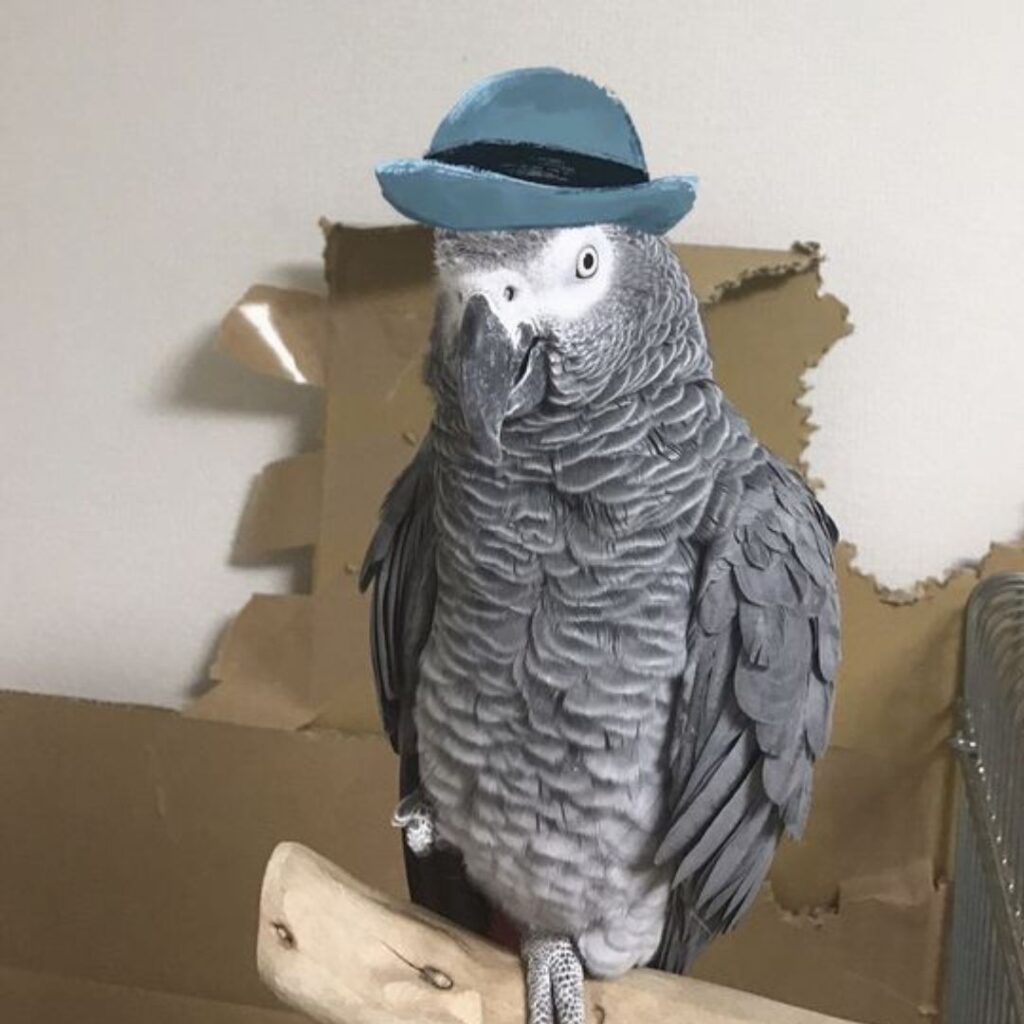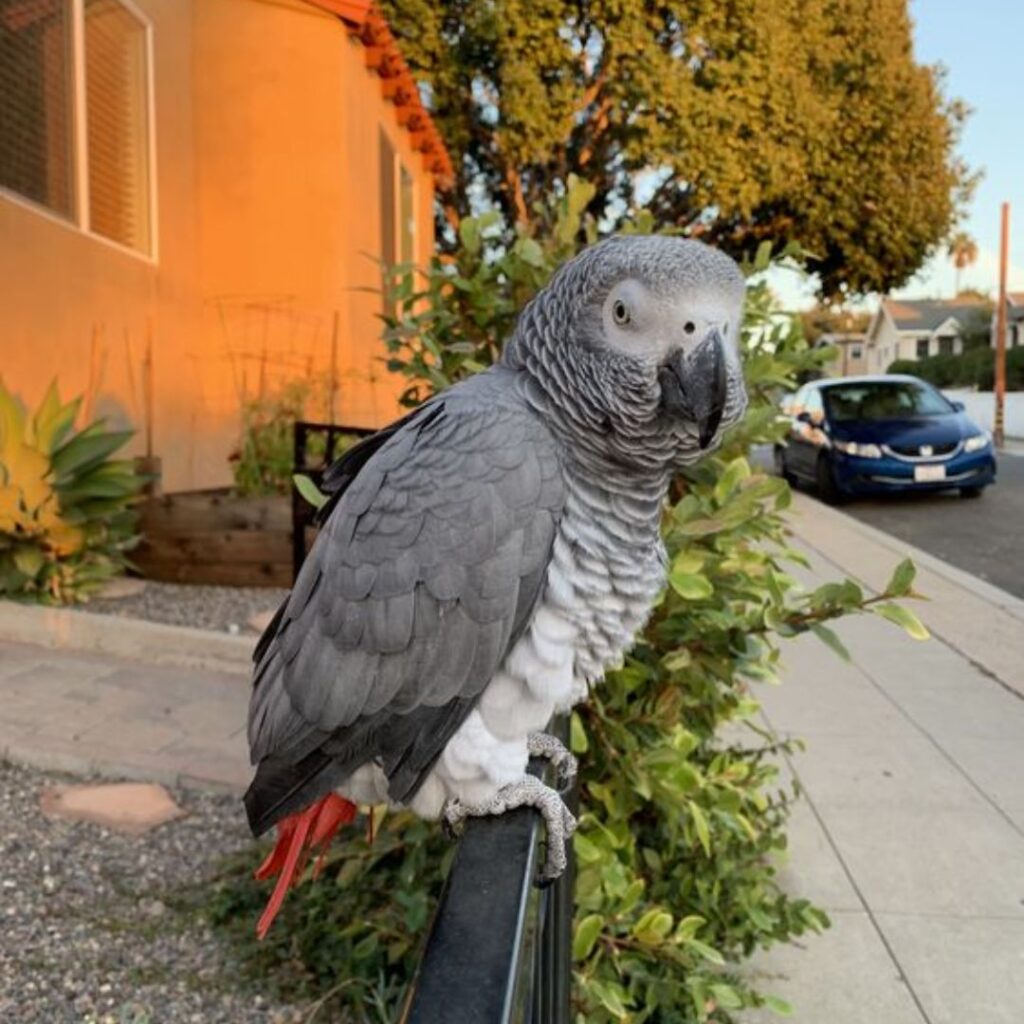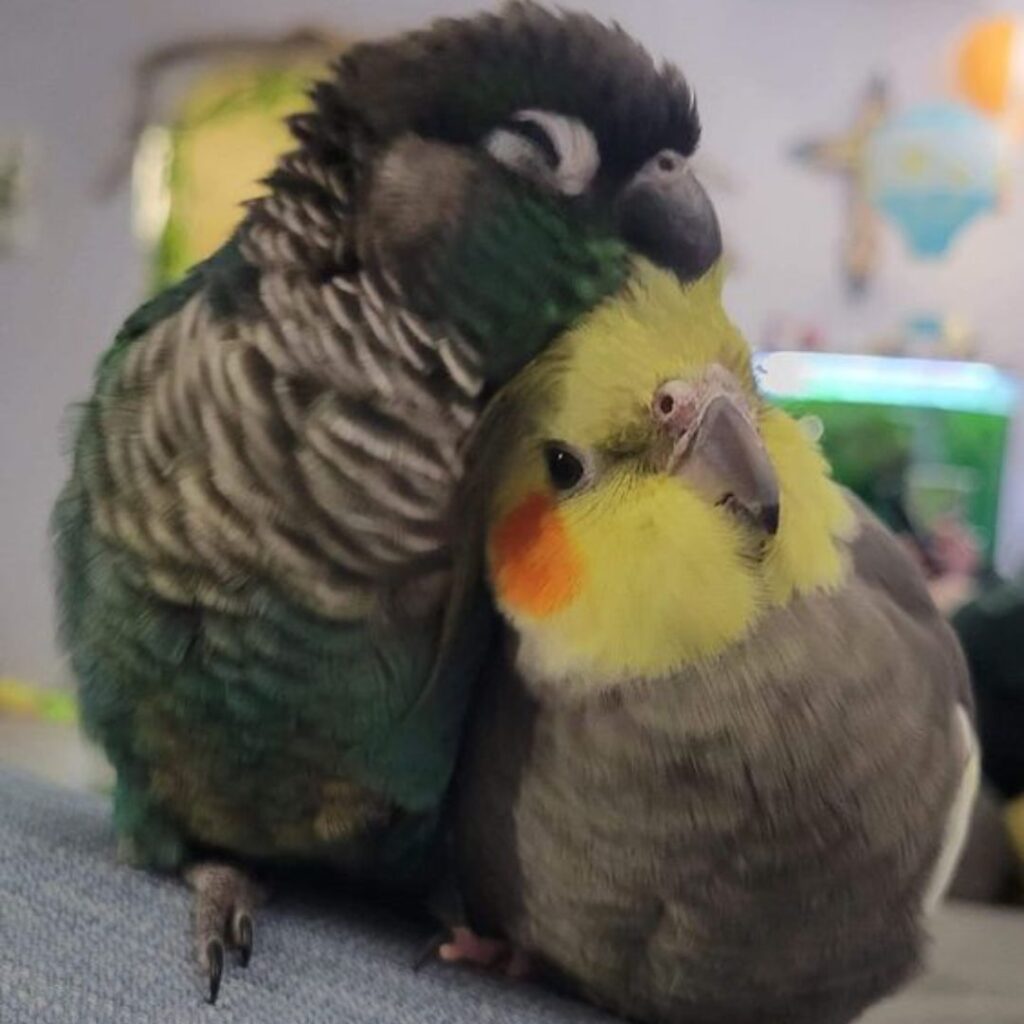
When it comes to choosing a pet, many factors come into play: temperament, intelligence, lifespan, and care requirements, to name a few. One exotic option that often catches the eye of an average newbie is the African Grey Parrot. Known for their exceptional intelligence and striking appearance, African Grey Parrots can be fascinating companions. But are African Grey Parrots a Good Pet? Let’s dive into the world of African Grey Parrots and explore their characteristics, care needs, and more to help you make an informed decision.
Also Read: Why Is My African Grey Parrot Losing Feathers?
African Grey Parrot Facts
African Grey Parrots are known for their intelligence and remarkable ability to mimic human speech. Here are some intriguing facts about these fascinating birds:
Origin and Habitat
African Grey Parrots are native to the rainforests of West and Central Africa. They thrive in dense forests, but can also be found in savannas, mangroves, and gardens. There are two subspecies: the Congo African Grey and the Timneh African Grey, with the former being larger and more common in the pet trade.
Appearance
The African Grey Parrot is a medium-sized bird, typically measuring around 12-14 inches in length with a wingspan of up to 20 inches. They are predominantly grey, with a striking red tail and a white mask around their eyes. Their beak is strong and black, ideal for cracking nuts and seeds.
Intelligence and Communication
These parrots are often referred to as the “Einsteins” of the bird world. They can learn and repeat a vast vocabulary of words and phrases, and some have been known to use words in context, demonstrating a high level of cognitive ability. They also exhibit problem-solving skills and can perform complex tasks, making them one of the most intelligent bird species.
Social Behavior
African Grey Parrots are highly social birds that form strong bonds with their owners. They thrive on interaction and can become depressed if left alone for long periods. Their social nature means they require a lot of attention and mental stimulation to stay happy and healthy.

African Grey Parrot Care
Owning an African Grey Parrot is a long-term commitment that requires careful consideration and preparation. Here’s what you need to know about caring for these intelligent birds:
Diet and Nutrition
A balanced diet is crucial for the health and well-being of an African Grey Parrot. Their diet should include a variety of:
- Pellets: Specially formulated pellets should make up about 70-80% of their diet.
- Fresh Fruits and Vegetables: Offer a variety of fruits and vegetables daily to provide essential vitamins and minerals.
- Nuts and Seeds: These should be given in moderation due to their high-fat content.
- Clean Water: Fresh water should be available at all times.
Housing
African Grey Parrots need a spacious cage to accommodate their size and activity level. The cage should be large enough for them to spread their wings fully and include:
- Perches of various sizes and textures: To keep their feet healthy.
- Toys and Enrichment: To provide mental stimulation and prevent boredom.
- A designated sleep area: A quiet, dark place for uninterrupted rest is essential.
Health and Veterinary Care
Regular veterinary check-ups are crucial to monitor the health of your African Grey Parrot. Some common health issues include:
- Feather Plucking: Often a sign of stress or illness.
- Respiratory Problems: Can be caused by poor air quality or infections.
- Psittacosis: A bacterial infection that can be transmitted to humans.
Preventive care, a clean living environment, and a balanced diet are key to keeping your parrot healthy.
Social Interaction and Training
African Grey Parrots thrive on social interaction and mental stimulation. Spend quality time with your bird daily, engaging in activities like:
- Talking and Singing: Encourage their natural vocal abilities.
- Training Sessions: Use positive reinforcement to teach tricks and commands.
- Interactive Toys: Puzzle toys and foraging activities to keep their minds active.

African Grey Parrot Price
The cost of an African Grey Parrot can vary widely based on factors such as age, subspecies, and breeder reputation. Here’s a breakdown of what to expect:
Initial Purchase Price
- Congo African Grey: Typically ranges from $1,500 to $3,500.
- Timneh African Grey: Slightly less expensive, usually between $1,000 and $2,500.
Ongoing Costs
Owning an African Grey Parrot involves more than just the initial purchase price. Ongoing expenses include:
- Food and Supplements: Expect to spend around $20 to $50 per month.
- Toys and Enrichment: Budget for new toys regularly, as these intelligent birds need constant stimulation.
- Veterinary Care: Annual check-ups and emergency care can add up, so having a fund set aside is wise.
- Cage and Accessories: A high-quality, spacious cage can cost anywhere from $200 to $1,000, depending on the features.
Lifespan of African Grey Parrot
One of the most appealing aspects of African Grey Parrots is their long lifespan. With proper care, these birds can live for several decades, making them a lifelong commitment.
Average Lifespan
In captivity, African Grey Parrots typically live between 50 to 60 years, and some have been known to reach 70 years or more. This long lifespan means they often outlive their owners, so planning for their future care is essential.
Factors Influencing Lifespan
Several factors can influence the lifespan of an African Grey Parrot, including:
- Diet and Nutrition: A balanced diet is crucial for longevity.
- Health Care: Regular veterinary visits and preventive care.
- Living Conditions: A clean, safe environment with plenty of mental and physical stimulation.
- Social Interaction: Regular interaction and engagement to prevent loneliness and stress.

How Many Words Can African Grey Learn?
African Grey Parrots are famous for their impressive vocabulary and ability to mimic human speech. But how many words can they actually learn?
Vocabulary Range
On average, an African Grey Parrot can learn between 200 to 1,000 words. Some exceptionally talented individuals have been known to learn even more. Their ability to mimic sounds and speech is not just limited to words; they can also replicate environmental noises like phones ringing, doorbells, and other household sounds.
Factors Affecting Word Learning
Several factors can influence how many words an African Grey Parrot can learn:
- Training and Interaction: Regular, consistent training sessions and interaction are key.
- Age: Younger birds tend to learn new words more quickly.
- Environment: A stimulating environment with varied sounds and frequent human interaction helps.
- Individual Ability: Just like humans, some parrots are naturally more gifted with language skills than others.
Using Words in Context
What sets African Grey Parrots apart from many other bird species is their ability to use words in context. This means they can associate specific words with actions or objects, demonstrating a deeper understanding of language. For example, they might say “hello” when you enter the room or “bye-bye” when you leave.
Also Read: How To Bath Your African Grey Parrot

Conclusion
In conclusion, African Grey Parrots can make wonderful pets for the right owner. Their intelligence, social nature, and long lifespan make them fascinating companions. However, they require a significant commitment in terms of time, attention, and resources. Before bringing an African Grey Parrot into your home, it’s essential to consider their care needs, potential costs, and your ability to provide a stimulating environment. If you can meet these requirements, an African Grey Parrot can be a delightful and rewarding addition to your family, offering years of companionship and entertainment.
Pingback: Why Is My African Grey Parrot Losing Feathers?
Pingback: Pros & Cons of Owning an African Grey Parrot